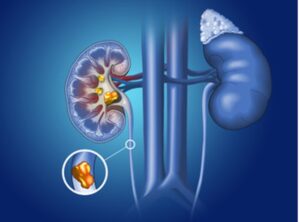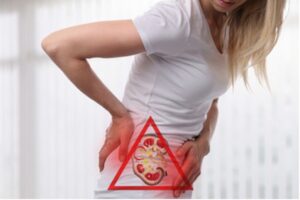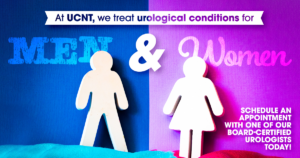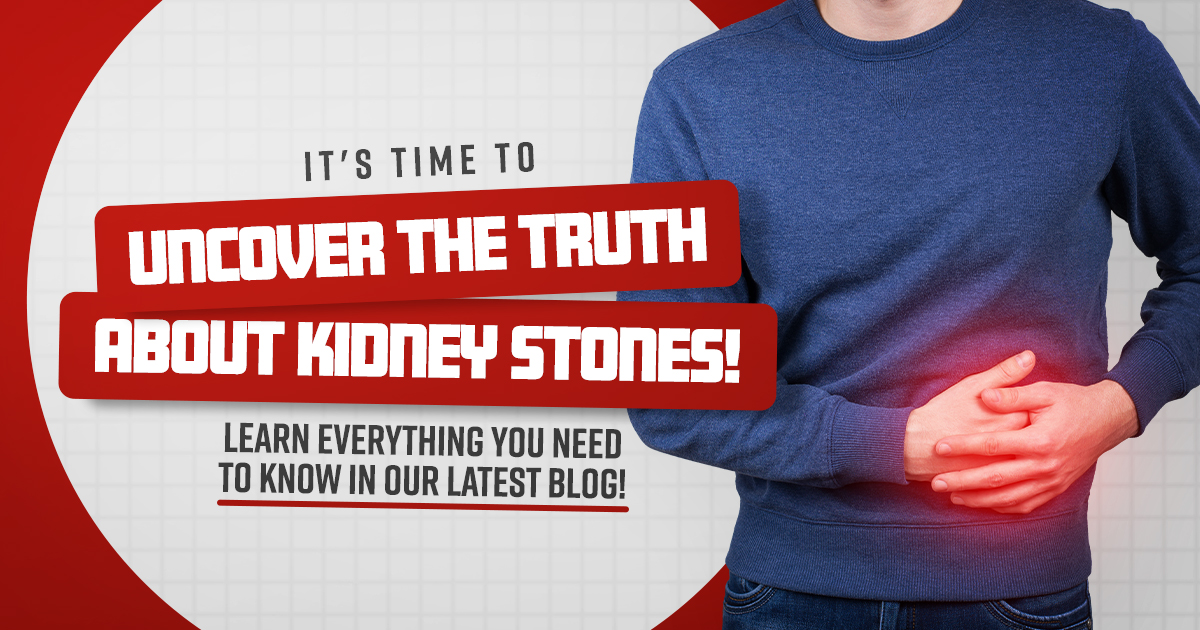Living with the pain of kidney stones can be downright draining physically and emotionally. However, the unknown is always scarier. Don’t let this condition catch you by surprise; learn everything you need to know about kidney stones in our latest blog!
Kidney Stones Explained – What are They?
Like the individuals affected by them, kidney stones come in many shapes and sizes. Yet, they all serve the same unpleasant purpose, pain. A kidney stone is a hard deposit of minerals and acid salts that form a hard crystalline mass in the kidney or urinary tract—often making it quite difficult for the person to pass through urination. While some can pass these stones naturally, others require medical intervention. Unfortunately, once someone has had a kidney stone, they have an increased risk of developing another – so prevention is key. People who find themselves with recurrent kidney stones may find that they have different types. There are four distinct varieties:
- Calcium kidney stones are the most common kind. They occur due to an excess of calcium in the urine and can be composed of calcium oxalate or phosphate.
- Uric Acid kidney stones are the second most common and are caused by increased uric acid levels in the urine. People who consume diets high in animal protein can have more acidic urine, potentially resulting in higher uric acid levels.
- Cystine kidney stones tend to form in people with high cystine levels in their urine. This type is rare and related to an inherited metabolic disorder.
- Struvite kidney stones are the byproduct of certain bacteria in the urinary system. These stones form when ammonium , phosphate, and organic materials accumulate. Struvite stones are less common and often linked to infections in the urinary tract.

How to Spot Kidney Stones
While the exact culprit behind kidney stones remains unknown, some things can aid their formation. Stones are more likely to occur in individuals who don’t drink a sufficient amount of water. Lack of hydration raises the concentration of substances such as oxalate within their bodily fluids, facilitating the substances to combine and form crystals.
Frequently experienced symptoms include:
- Abdominal or back pain (can be severe)
- Blood in urine
- Cloudy urine
- Chills and fever
- Nausea
- Pain while urinating
- Vomiting
While some kidney stones can be passed on their own, some can block kidney function or cause infection if left untreated. It is important to consult with a urologist to determine the best course of action for your situation.

Diagnosis and Treatment: How Can a Urologist Help?
Kidney stones can be problematic but diagnosing them is easy. If a patient is showcasing symptoms, a urologist can confirm the diagnosis through urinalysis, blood tests, and imaging studies like x-rays, ultrasounds, and CT scans. Imaging tests can also help identify any blockages potentially causing a kidney stone.
When it comes to treatment, there’s no one-size-fits-all solution. Your urologist will review your test results and make a treatment plan based on your situation. If the stone requires surgical intervention, the following procedures may be recommended:
Extracorporeal shock wave lithotripsy (ESWL) – This procedure uses sound waves to create vibrations to break up the stones, making them small enough to pass.
Utereroscopy – This procedure passes a thin, lighted scope with a camera into your bladder and uses tools to break the stones into pieces you can pass in your urine.
Percutaneous Nephrolithotomy – This procedure removes the stone using small scopes through a small incision in your back.
Never leave kidney stone diagnosis up to chance. If you suspect the condition is present, meet with a urologist today and leave no kidney stone unturned!
 When it comes to kidney stones, time is of the essence. At Urology Clinics of North Texas, we can help you put this painful condition behind you. Visit our website to schedule an appointment and learn more about our services!
When it comes to kidney stones, time is of the essence. At Urology Clinics of North Texas, we can help you put this painful condition behind you. Visit our website to schedule an appointment and learn more about our services!
Resources:
https://www.kidney.org/atoz/content/kidneystones
https://www.niddk.nih.gov/health-information/urologic-diseases/kidney-stones/definition-facts
https://www.kidneyfund.org/all-about-kidneys/other-kidney-problems/kidney-stones


